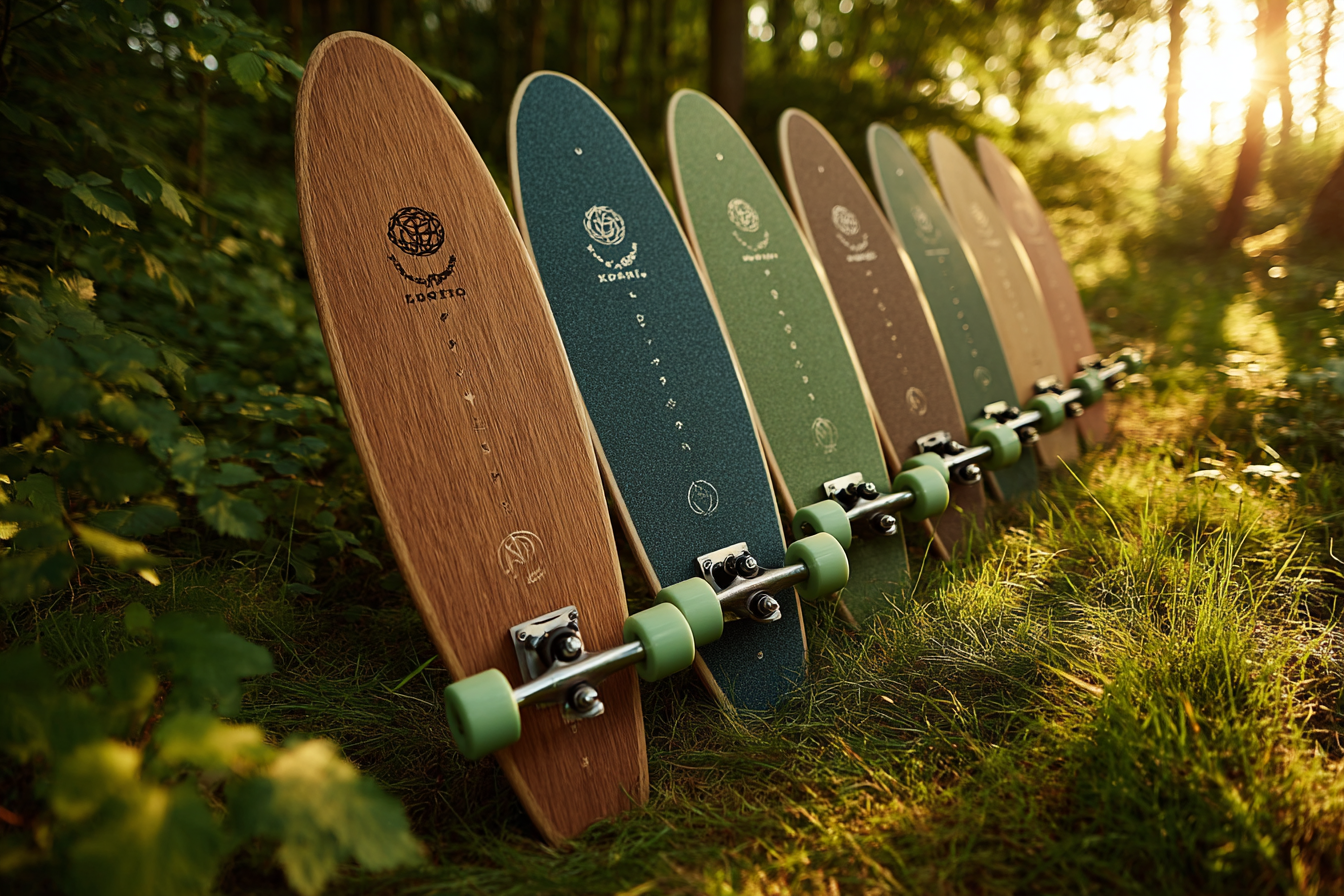Skateboarding has long been associated with a sense of rebellion, creativity, and community. But as awareness around climate change and environmental responsibility grows, the skateboarding world is also evolving. Today, a significant shift is happening in the industry with an increasing number of brands embracing sustainability. These sustainable skateboarding brands are not only dedicated to reducing their environmental footprint but also empowering riders to make eco-conscious choices through innovative products and ethical practices. Let’s dive into the world of sustainable skateboarding and explore how these brands are driving the green revolution on wheels.
Understanding Sustainability in the Skateboarding Industry
When we talk about sustainability in skateboarding, it goes beyond just the boards themselves. The concept involves considering every stage of a product’s lifecycle—from sourcing raw materials to manufacturing, packaging, transportation, and even what happens when the product reaches the end of its life. Traditionally, the skateboarding industry has relied heavily on materials like maple wood for decks and polyurethane for wheels. These materials, while offering great performance, often carry environmental drawbacks, such as deforestation and pollution during production.
Sustainable skateboarding brands take a holistic approach to minimize their environmental impact. This includes using responsibly sourced or recycled materials, adopting cleaner manufacturing processes, and ensuring fair labor practices. Additionally, many brands emphasize durability to reduce waste and push for circular economy principles like product repair, recycling, and reuse. Sustainability in skateboarding reflects a growing commitment to protect the natural spaces where riders enjoy their sport and to foster a healthier planet for future generations.
Profiles of Leading Eco-Friendly Skateboarding Brands
Several pioneering brands have emerged as leaders in sustainable skateboarding, each bringing unique innovations and philosophies to the table:
- Loaded Boards: Known for their high-quality longboards, Loaded Boards incorporates sustainably sourced woods like bamboo and maple certified by the Forest Stewardship Council (FSC). They also focus on minimal-waste manufacturing techniques and eco-friendly resins.
- Arbor Collective: Arbor has built its reputation on producing decks, snowboards, and apparel with an emphasis on sustainability. They use FSC-certified wood, bio-resins, and recycled materials across their product lines.
- Chocolate Skateboards: Aiming to reduce their environmental footprint, Chocolate Skateboards has introduced initiatives like using recycled wheel cores and eco-friendly packaging materials.
- Green Label Skateboards: This brand is fully dedicated to sustainability, offering decks made from 100% recycled materials and soy-based inks for their graphics.
- Landyachtz: Combining innovation with responsibility, Landyachtz offers durable wooden skateboards and encourages skate culture that respects natural surroundings.
These brands highlight how sustainability and skateboarding culture can coexist creatively and profitably, paving the path for others to follow.
Materials and Manufacturing Processes Used
The choice of materials and manufacturing processes is central to the sustainability efforts of skateboarding brands. Traditional decks use multiple layers of maple veneer glued together with synthetic resins, which can contribute to deforestation and involve toxic chemicals. In contrast, sustainable brands opt for alternative materials and eco-friendlier methods:
- Recycled and FSC-Certified Wood: Sustainable decks often use wood certified by the FSC to ensure responsible forestry. Some brands utilize bamboo, a fast-growing, renewable resource that offers strength and flexibility.
- Bio-Resins and Adhesives: Instead of petroleum-based glues, bio-resins derived from plant sources reduce carbon emissions and toxicity.
- Recycled Plastics: For wheels and accessories, recycled polyurethane or biodegradable compounds are becoming more common, lowering landfill waste.
- Water-Based Inks and Packaging: Many eco-conscious brands print graphics using water-based, non-toxic inks and package goods in recycled or biodegradable materials.
- Energy-Efficient Manufacturing: Some companies source renewable energy for production processes and implement waste reduction programs to enhance sustainability.
By innovating with materials and manufacturing, these brands reduce harmful environmental impacts while maintaining the performance standards skateboarders demand.
Environmental Benefits and Challenges
Embracing sustainability in skateboarding brings tangible environmental benefits:
- Reducing deforestation by using certified wood and alternative materials preserves ecosystems and biodiversity.
- Lowering greenhouse gas emissions through bio-resins and renewable energy contributes to combating climate change.
- Minimizing plastic use and improving recycling cuts down on pollution and landfill waste.
- Promoting ethical manufacturing supports fair labor and social sustainability.
However, the journey is not without challenges. Sustainable materials may carry higher costs, making eco-friendly products more expensive for consumers. Scaling up production while maintaining environmental standards requires significant investment. Additionally, bike performance and durability must never be compromised, which means constant research and testing are necessary to find the right materials and methods.
Despite these hurdles, the progress made by sustainable skateboarding brands demonstrates a clear path forward, inspiring innovation and responsible consumption in the industry.
Consumer Demand and Market Impact
Today’s consumers are more environmentally conscious than ever across all demographics, and skateboarders are no exception. As riders become aware of the ecological impact of their gear, many actively seek out sustainable options. This consumer demand drives brands to embed sustainability into their core business strategies.
Market analysis shows a steady increase in the sales of eco-friendly skate products, such as decks made from recycled or certified wood and wheels derived from non-toxic compounds. Retailers also recognize the trend, giving more shelf space and marketing efforts to sustainable brands.
The positive market response encourages even mainstream skate companies to rethink their practices, gradually pushing the entire industry toward greener alternatives. It’s a ripple effect where consumer awareness translates into tangible environmental benefits.
How Sustainable Brands Influence Industry Trends
The impact of sustainable skateboarding brands on industry trends is significant and multi-dimensional:
- Innovation Drivers: Sustainability challenges spark material research and novel manufacturing technologies, raising the overall quality and environmental standards across brands.
- New Consumer Values: The rise of eco-friendly brands shifts market expectations, with more riders valuing transparency and ethical practices in their buying decisions.
- Collaborations and Partnerships: Sustainable brands often partner with environmental organizations and involve local communities, setting examples for corporate social responsibility.
- Design Aesthetics: The use of natural materials and eco-friendly processes influences skate graphics and designs, often celebrating nature and sustainability themes.
- Industry Regulations: As sustainable practices become mainstream, they can influence stricter regulations on material sourcing and manufacturing standards across the board.
All these factors contribute to shaping a skateboarding culture that respects both the community and the planet, strengthening the sport’s positive legacy.
Riding Toward a Greener Future
The growing importance of green skateboarding is clear—not just as a niche but as a movement reshaping an entire industry. Sustainable skateboarding brands are proving that it’s possible to deliver high-quality, performance-driven products while reducing environmental impact and fostering ethical business practices. As riders increasingly embrace these values, the industry is poised to continue innovating, inspiring, and building a more responsible future.
For skateboarders passionate about the environment and community, choosing sustainable gear offers a meaningful way to contribute toward keeping parks, streets, and natural spaces clean and vibrant. The ride toward sustainability is a collective journey, where every push, ollie, and grind can make a difference in protecting our planet.







